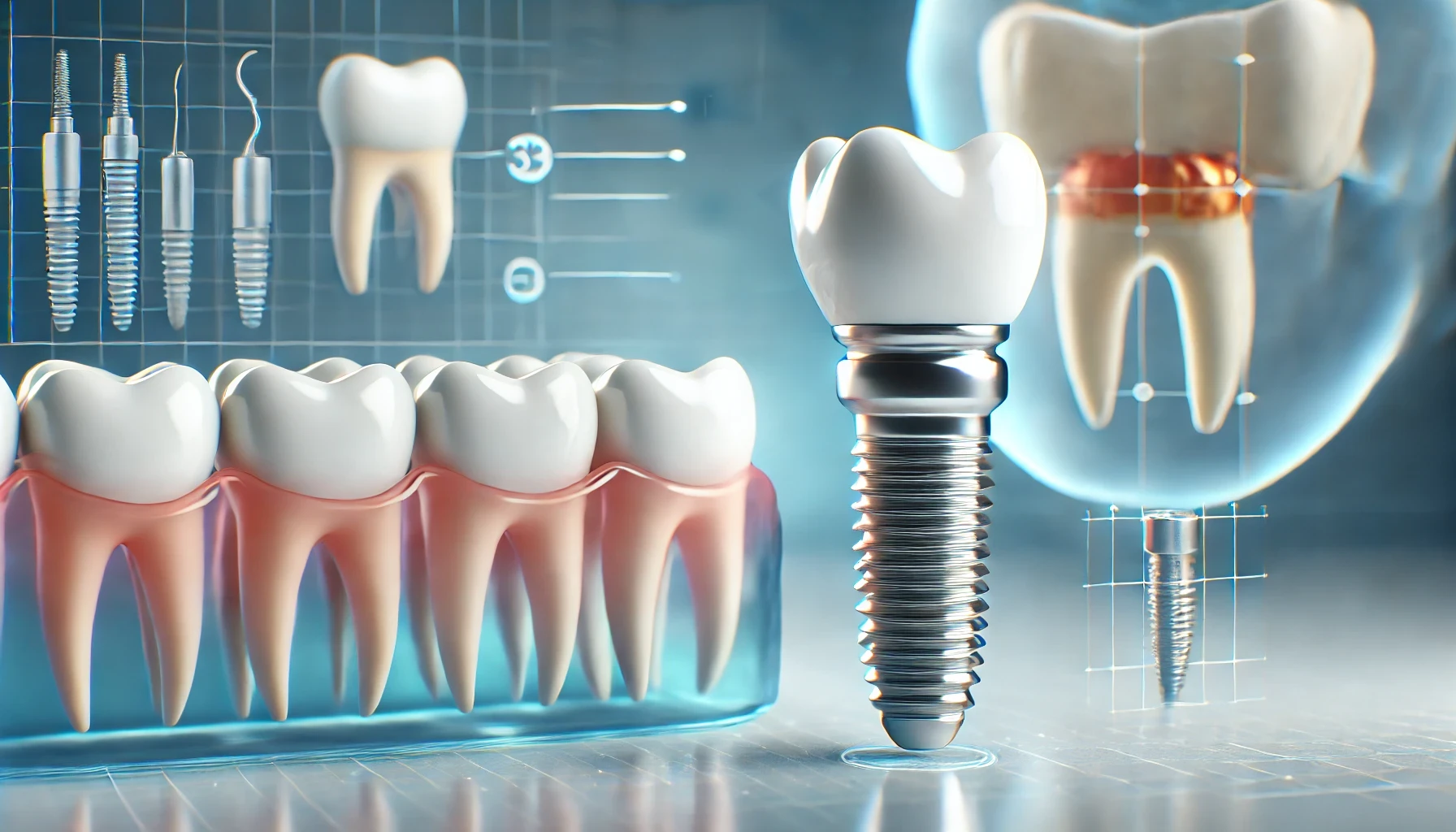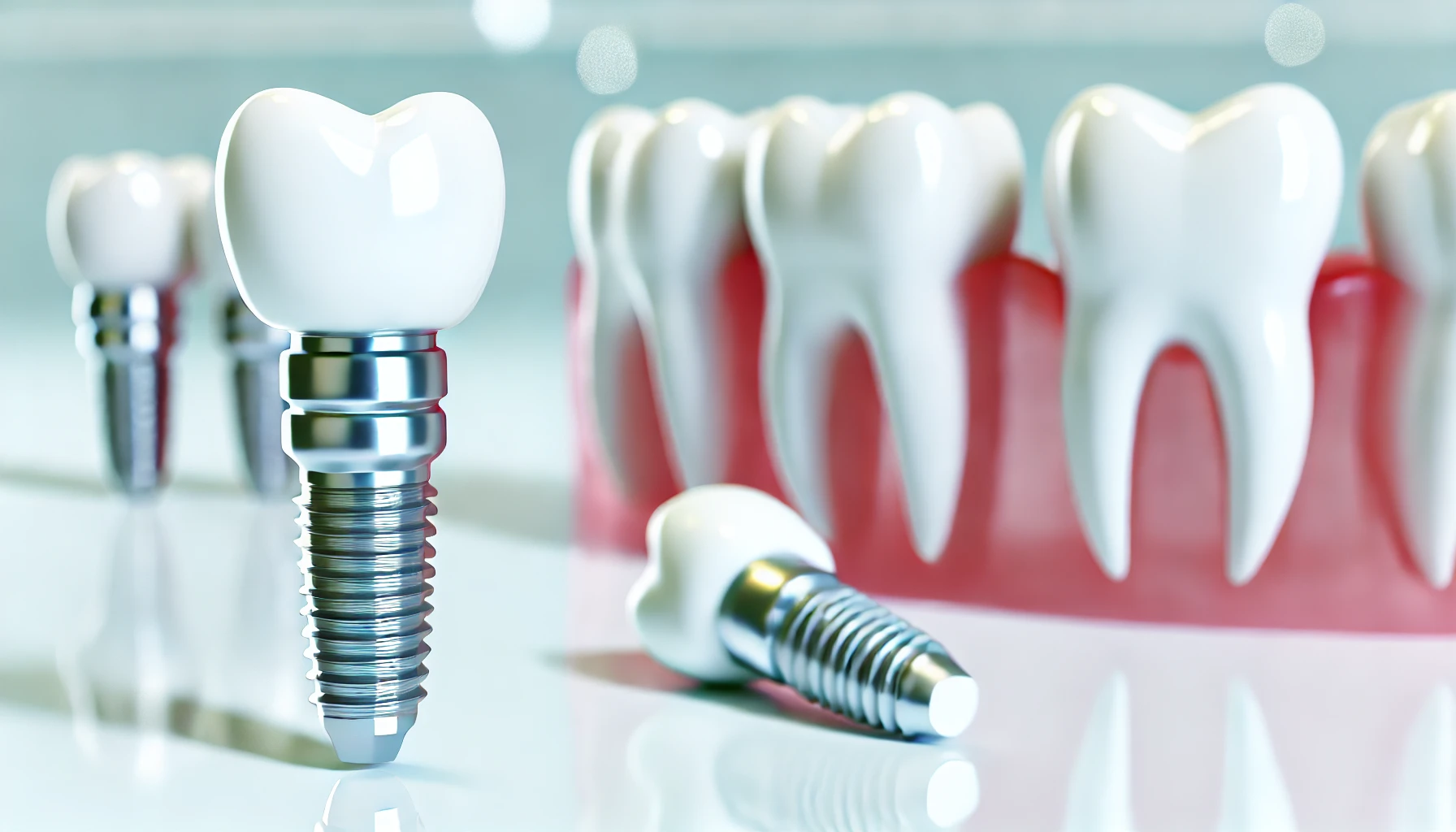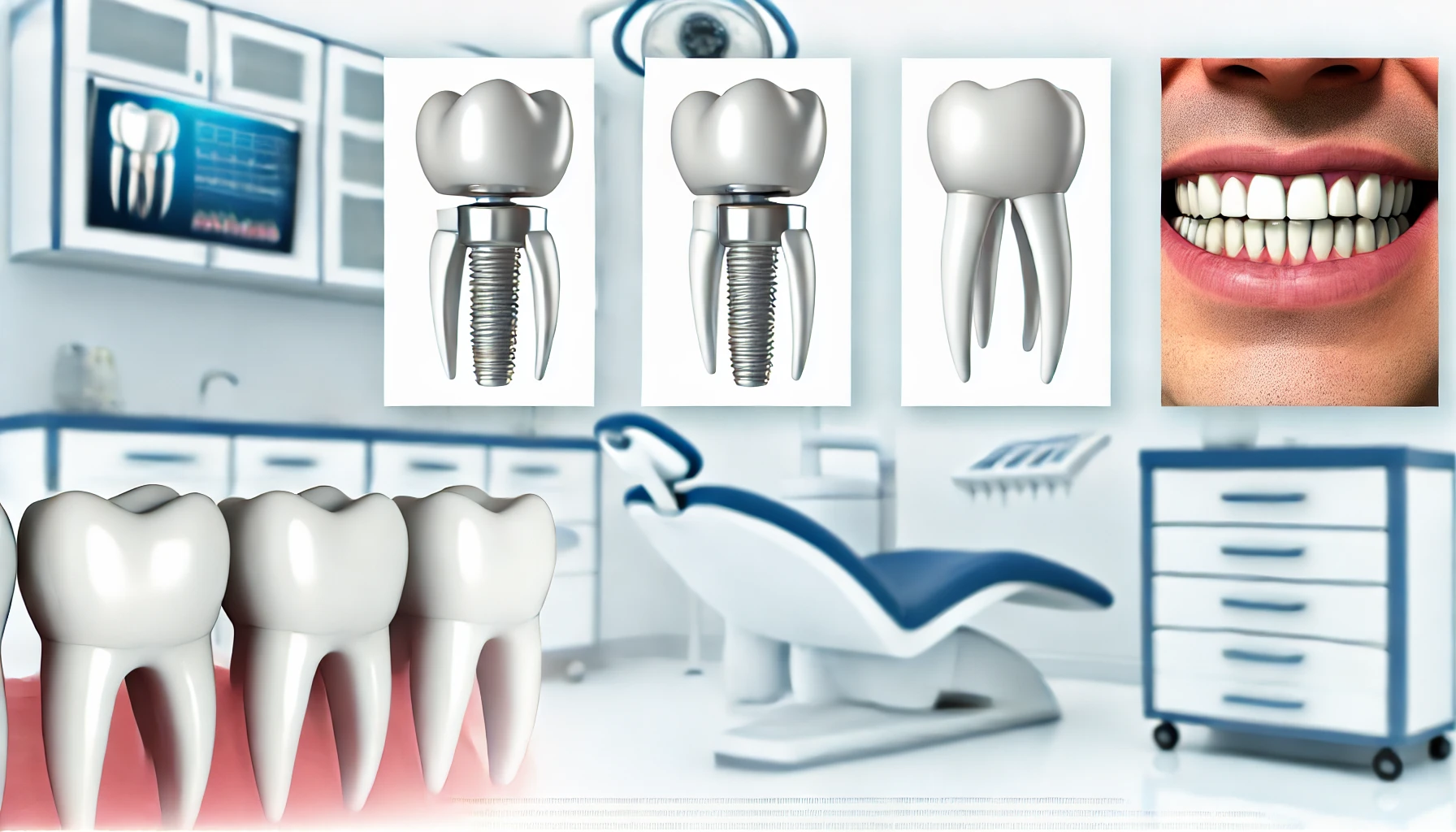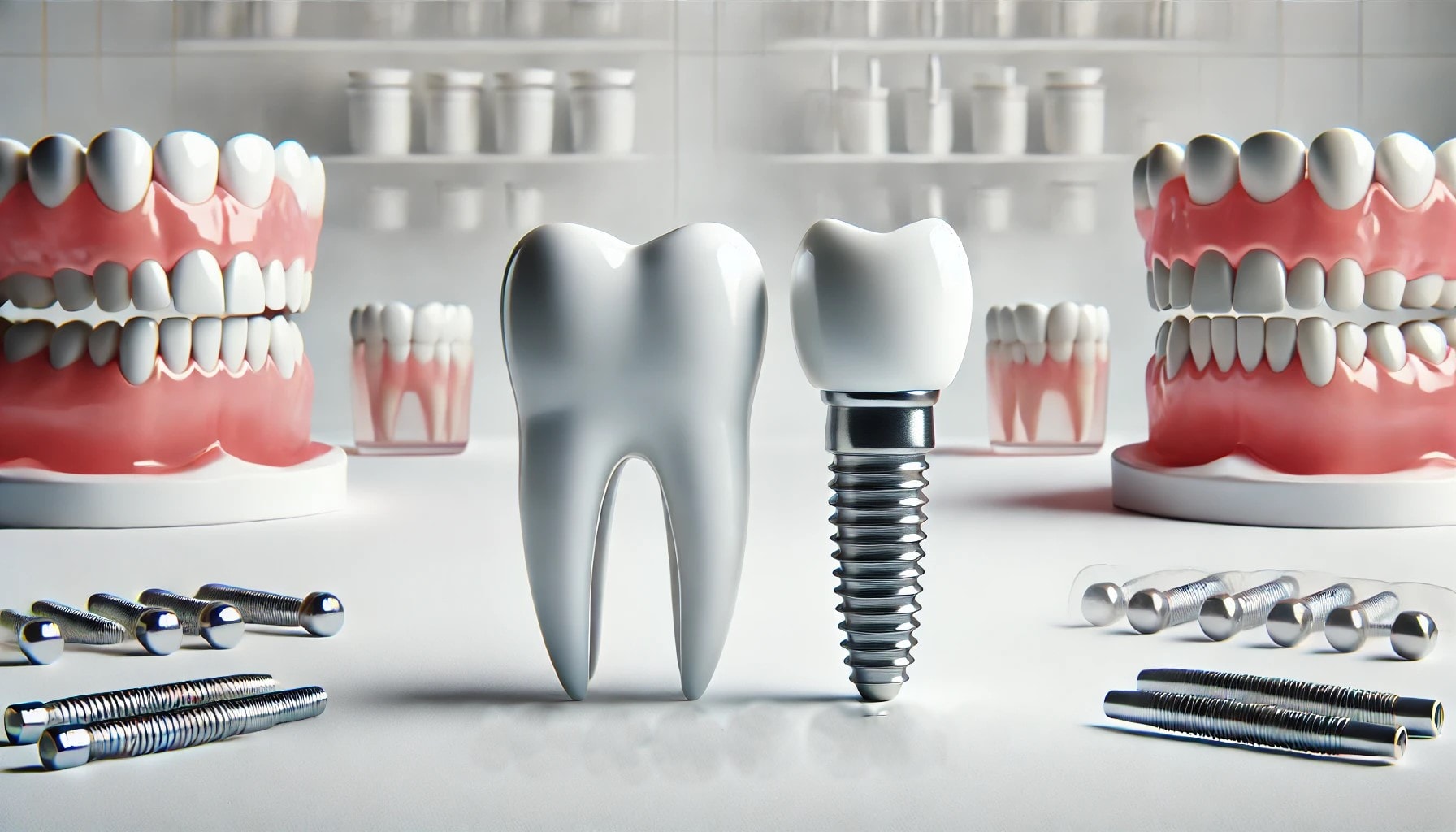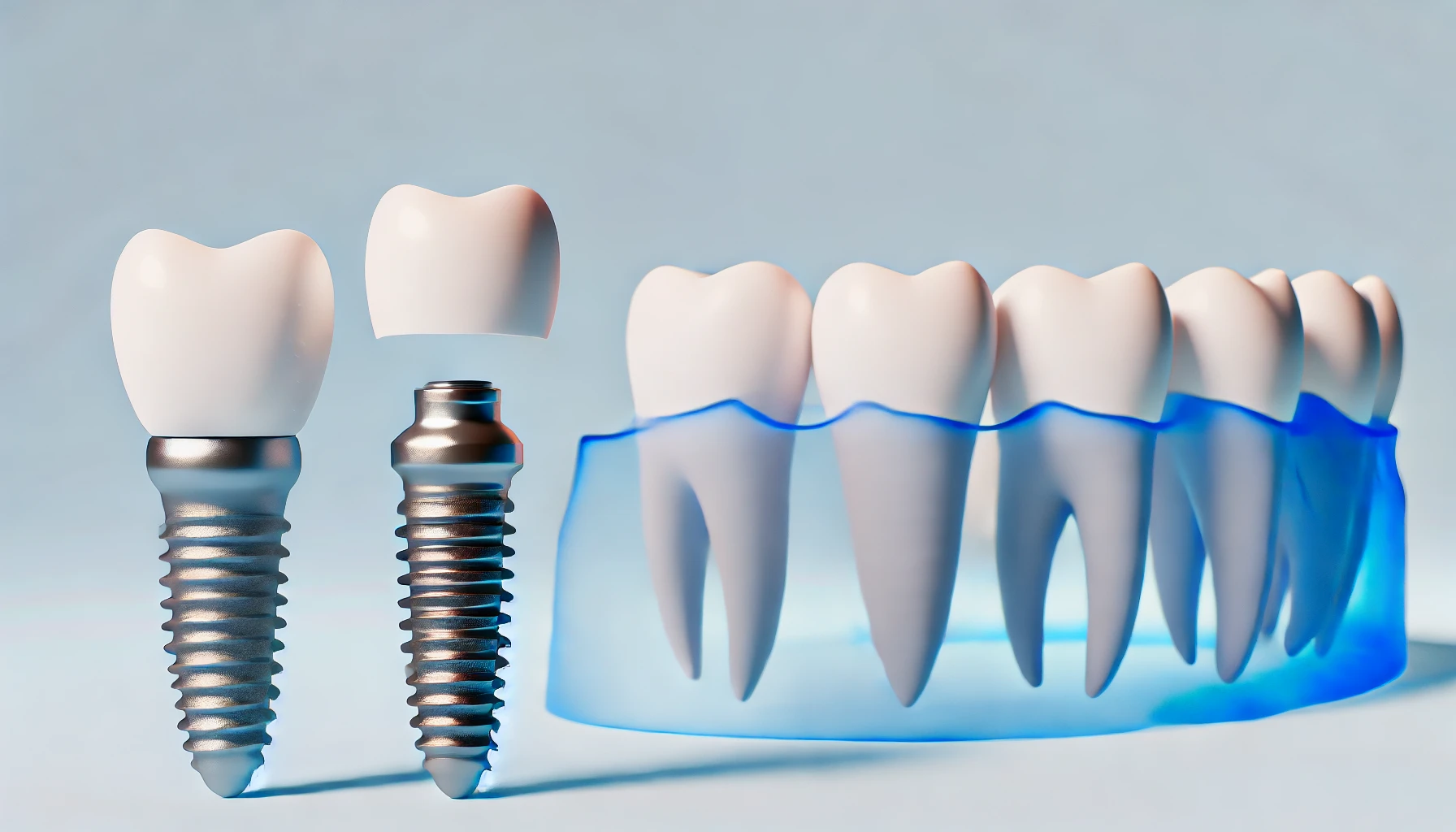Dental implants are considered the gold standard for replacing missing teeth, offering a long-lasting, natural-looking solution.
Whether you’ve lost a tooth due to injury, decay, or other reasons, a dental implant can restore both function and aesthetics. This article will explain why dental implants are an ideal choice, how they work, and what to expect during the treatment process.
What are dental implants and how do they work?
Dental implants are small titanium posts surgically placed into the jawbone, serving as artificial roots for replacement teeth.
Over time, the implants fuse with the bone through a process called osseointegration, offering a stable and durable foundation for one or more prosthetic teeth. Once integrated, a connector, known as an abutment, is attached to the implant, allowing a custom-made crown to be securely placed on top.
This replication of a natural tooth structure enables dental implants to restore function and appearance effectively, making them a reliable and long-term solution for tooth loss while maintaining the health of surrounding teeth.
How much do dental implants cost?
The cost of dental implants varies, depending on several factors. These include the number of implants needed, the complexity of the case, and any additional procedures necessary to ensure implant success. On average, a single dental implant can range from $3,000 to $4,500 in the United States.
While this may seem expensive at first glance, it’s important to consider the long-term benefits and potential cost savings compared to other tooth replacement options. Unlike dentures or bridges, which may need frequent repairs or replacements over time, dental implants are designed to last a lifetime with proper care.
Dental implants vs. Dentures: Which is better?
Dental implants and dentures are two common solutions for replacing missing teeth, but they differ in several ways. Dentures are removable prosthetic teeth that sit on top of the gums, while dental implants are anchored into the jawbone, offering a more stable and natural-looking replacement.
Additionally, dentures may cause discomfort or inconvenience when eating or speaking, as they can slip out of place. Dental implants effectively restore chewing function and prevent issues with speech or pronunciation.
In terms of maintenance, dentures require daily cleaning and removal at night, while dental implants can be treated like natural teeth – brushing, flossing, and regular dental check-ups. Overall, dental implants offer a more permanent and convenient solution for tooth loss.
How long do dental implants last?
Dental implants are renowned for their durability and longevity. With proper care and maintenance, implants can last a lifetime, making them a cost-effective investment in oral health. The success of an implant depends on factors such as oral hygiene, lifestyle habits, and regular dental check-ups.
The underlying crown or prosthetic may require replacement after 10 to 15 years due to wear. Nonetheless, high success rates and minimal complications contribute to their enduring reputation as a reliable solution.
Here’s why dental implants are the best solution for missing teeth:
- Permanent and durable: A dental implant is surgically placed in the jawbone, where it fuses with the bone, providing a strong, permanent foundation for a replacement tooth.
- Natural appearance: Implants are designed to look and function like natural teeth, allowing you to eat, speak, and smile confidently.
- Preserve bone structure: Unlike dentures, implants stimulate the jawbone, preventing bone loss that can occur when teeth are missing.
- No impact on adjacent teeth: Implants don’t rely on neighboring teeth for support, unlike dental bridges, preserving the health of your remaining teeth.
- Long-lasting solution: With proper care, a dental implant can last a lifetime, making it a cost-effective choice in the long run.
Summary
Dental implants offer a permanent, natural-looking solution to replace missing teeth. They not only restore the function and appearance of your tooth, but also help preserve bone health and prevent further oral health complications.
The procedure, while surgical, provides long-term benefits and is a superior alternative to dentures or bridges. With proper care, implants can last a lifetime, giving you the confidence to smile, eat, and speak without hesitation.
Questions and Answers
What is a dental implant?
A dental implant is a titanium post surgically placed in the jawbone to replace the root of the missing tooth, providing a foundation for a replacement tooth.
How long does the implant procedure take?
The procedure typically takes several months, allowing time for the implant to fuse with the bone before the replacement tooth is attached.
Are dental implants permanent?
Yes, with proper care, dental implants can last a lifetime, making them a durable and long-lasting our solution.
Can anyone get a dental implant?
Most people with healthy gums and sufficient bone structure are good candidates, but about dentist will evaluate if you qualify for the procedure.
Does the procedure hurt?
The implant procedure is done under local anesthesia, so you won’t feel pain during the surgery, though has mild discomfort afterward is common.
How do I care for my dental implants?
Care for your implants just like natural teeth — brushing, flossing, and regular dental check-ups will help maintain their health.
What are the risks involved in getting dental implants?
Though rare, risks can include infection, implant failure, or nerve damage. Your dentist will discuss any potential risks before the procedure.
How much do dental implants cost?
The cost varies depending on factors such as location and the number of teeth being replaced, but they are generally more expensive upfront than dentures or bridges due to their long-term benefits.
Can dental implants improve my speech?
Yes, unlike dentures, which can slip and affect speech, implants provide a stable foundation, allowing you to speak clearly and confidently.
Why are dental implants better than dentures?
Implants offer more stability, prevent bone loss, and require less maintenance compared to dentures, making them a more permanent and convenient solution.



